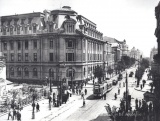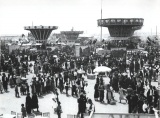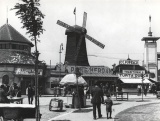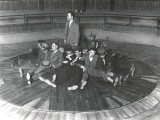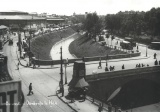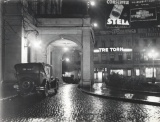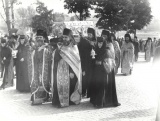Difference between revisions of "Nicolae Ionescu"
Sorindanut (talk | contribs) |
Sorindanut (talk | contribs) |
||
| Line 27: | Line 27: | ||
File:Nicolae Ionescu - The Queen Elisabeta Avenue in 1932.jpg|The Queen Elisabeta Avenue, 1932 | File:Nicolae Ionescu - The Queen Elisabeta Avenue in 1932.jpg|The Queen Elisabeta Avenue, 1932 | ||
File:Nicolae Ionescu - The Romanian Athenaeum. View from the Hotel Splendid in 1929.jpg|The Romanian Athenaeum, postcard, 1929 | File:Nicolae Ionescu - The Romanian Athenaeum. View from the Hotel Splendid in 1929.jpg|The Romanian Athenaeum, postcard, 1929 | ||
| − | | | + | File:Nicolae Ionescu - The Motorcar and the Ass, 1928.jpg|The Motorcar and the Ass, 1928 |
| + | File:Nicolae Ionescu - The Relics of Saint Demetrius, 1928.jpg|The Relics of Saint Demetrius, 1928 | ||
| + | File:Nicolae Ionescu - The Storck Museum.jpg|The Storck Museum | ||
| + | File:Nicolae Ionescu - The Whitewashers, 1928.jpg|The Whitewashers, 1928 | ||
| + | File:Nicolae Ionescu - Women selling flowers at the Grand Market in 1929.jpg|Women selling flowers at the Grand Market, 1929 | ||
</gallery> | </gallery> | ||
Revision as of 09:07, 21 October 2013
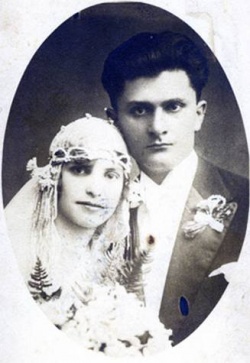 Photo of Nicolae Ionescu and his wife. | |
| Born |
November 1, 1903 Bucharest |
|---|---|
| Died | 1974, Bucharest |
Photography
Nicolae Ionescu (born 1903) worked first as a typographist in Bucharest. In 1927 he got employed in the Royal Army as a photographer and began photographing the city of Bucharest but also other places in the country. In order to follow the latest developments in photography he studied German and English. In 1928 he got married and used the dowry to acquire modern equipment for the photo laboratory. In 1930 he traveled to France and worked several months in the Lumiere factory in Lyon, and for a few months in Paris at Pathe Nathan.
Gallery
Awards
The works of Nicolae Ionescu won the second place at the Exhibition of photographs in 1936, and ONT bronze plaque at the International Photography Exhibition in Bordeaux in 1957.
Legacy
His photographs of Bucharest from the 1920s and 1930s provide a valuable document of the city. After his death, his wife sold a large part of the negatives, and ultimately the entire collection to the municipal bookshop "Mihai Sadoveanu" and the Romanian Academy.
